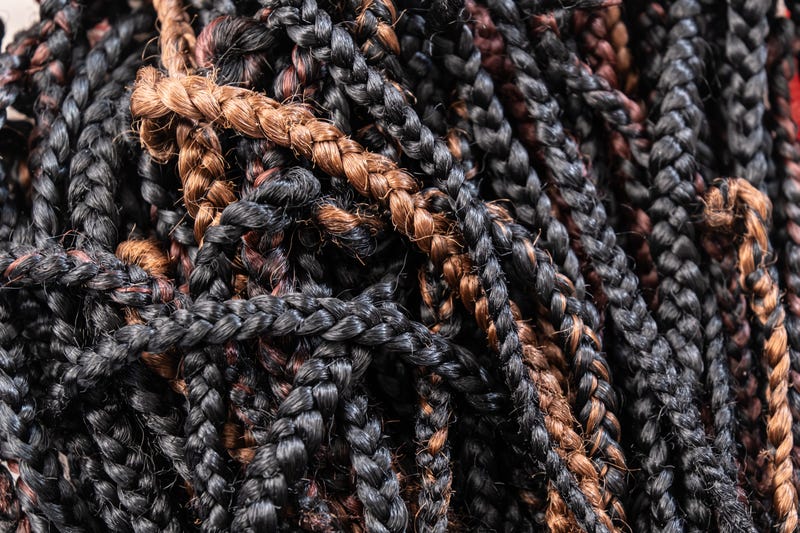
There's a new study that is raising some concern for black women. In the study, harmful, cancer-causing chemicals were found in some synthetic braiding hair products.
We all see the beauty supply ads usually displayed in Black neighborhoods that promote braiding hair products, however a Consumer Reports study found cancer-causing chemicals in 10 brands of braiding hair tested, three of which had the chemical benzene, which is mostly linked to leukemia.
Of the 10 companies whose products were tested, only two responded.
Magic Fingers sent this statement:
“Magic Fingers is proud of the trusted and top-quality hair products we provide to our customers. Our customers know they can count on us for braids and extensions that meet their highest expectations for fashion and performance. The unusual testing methods employed by Consumer Reports do not fairly match the real-world way that our customers use our Braiding Hair.”
Sensationnel sent this statement:
“At Sensationnel, we pride ourselves on producing the finest quality hair products on the market, and we are constantly evaluating our materials and processes with customer safety in mind. The claims and conclusions presented by the Consumer Reports study are unfounded and misleading. Its study used a harsh and unusual testing methodology on hair braiding products that are clearly not intended for ingestion. We strongly disagree with the claims Consumer Reports makes about the potential risk to consumers that could arise from the safe and common use of our products. We unequivocally stand by the safety of Sensationnel products, and our company urges consumers to continue to confidently use Sensationnel products.”
While Sensationnel has a point about the report being misleading since braiding hair is not something that’s being ingested, scientists say said benzene does not need to be ingested in order to be harmful. “It’s near your face, so that’s in your breathing zone,” said Marsit.
In addition to this, some health experts and social justice scholars believe these products that are targeted to Black women and girls specifically are a form of environmental racism.
“I would definitely say that racism is at the core with regards to when any time a particular group is disproportionately impacted, discriminated against having particular life chances and is around race,” said Morehouse College Professor Taura Taylor, Ph.D.
“This is in my mind a public health emergency,” said dermatologist Dr. Alia Brown, who has treated patients who developed serious scalp and hand rashes from synthetic braids. She said the rashes combined with the new cancer risks should sound health alarms nationwide.
Hairstylist Dionna James said she developed health issues after decades of braiding and inhaling fumes from synthetic hair.
“I have suffered from benign tumors, so now I’m starting to think that maybe it may correlate to the hair,” said James.
It is important to note that most of the synthetic hair used for braiding is bought in bulk from overseas where regulations are different. So what now? Health experts said it is best for the consumer to purchase organic hair made with banana fibers.
